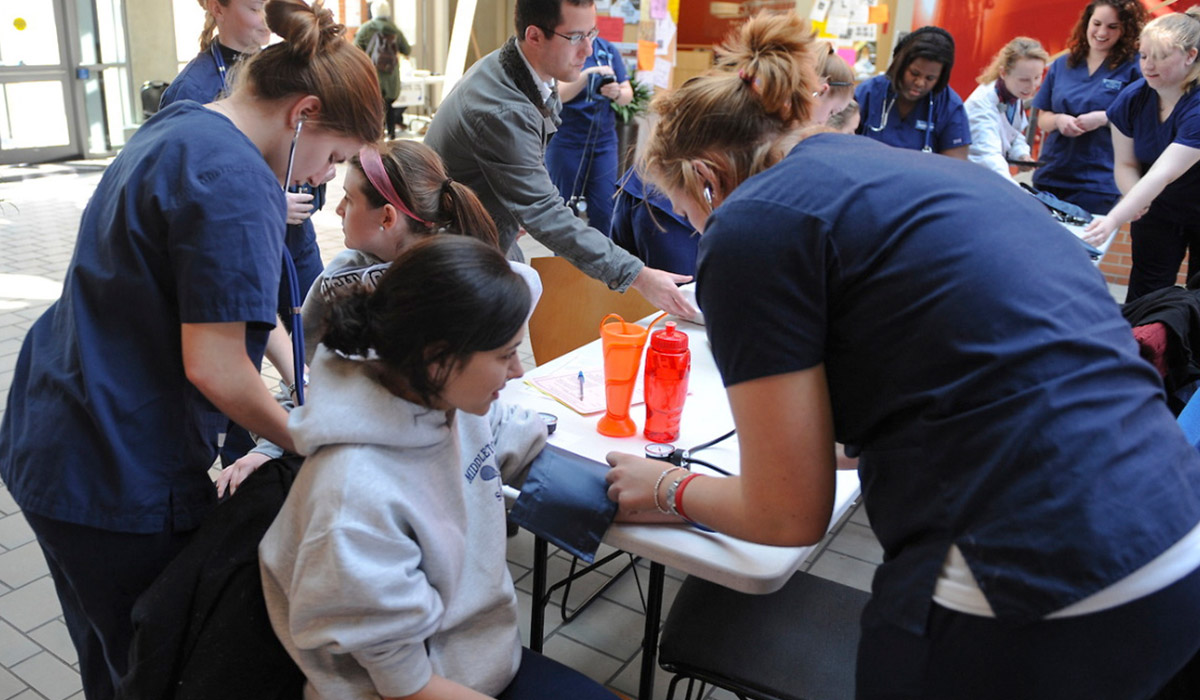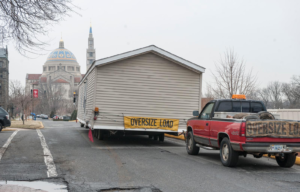Multiple Cases of Mumps Disease Confirmed on Campus

By Duane Paul Murphy, Jimmy Cassidy
Two students at The Catholic University of America have been diagnosed with mumps and are being quarantined, the university said, while several other students are undergoing testing for the disease.
In an email to the university community, Dr. Loretta Staudt, the director of the university’s Student Health Center, said last week that three students were being tested with mumps-like symptoms. The university later amended that to say a “handful” of students experienced symptoms, and that the D.C. Department of Health was handling the testing.
One student who has been tested for mumps-like symptoms and wishes to remain anonymous said that she experienced symptoms and went to Student Health Services a couple days later after the pain increased. Student Health Services quickly recognized her symptoms and drew blood to be sent for testing. She has been quarantined in her off-campus apartment since then, and the D.C. Department of Health has contacted her each day to check in and ask about symptoms. She has been asked many questions about how she may have come into contact with the virus, and was even read the names of other potential mumps cases to see if they were connected. The student has been informed by the Department of Health that the outbreak is not limited to college campuses, and was asked if she had attended any of the recent Hispanic Heritage Month celebrations in the city, as one connection was drawn to them by the Department of Health.
The student indicated that Catholic has been as helpful as possible throughout the process.
“The school has been emailing and calling me daily to see if I needed anything,” she said in an interview with The Tower. “They have been super supportive which has felt great, but they have also reminded me to stay away from the rest of campus.”
The Student Health Services received final laboratory test results from the medical testing company Quest Diagnostics, which revealed that two students have a confirmed diagnosis of mumps. Six other students have been treated for suspected mumps after experiencing swollen parotid glands and other flu-like symptoms.
The university’s Incident Management Team is working with the District of Columbia Department of Health to implement certain practices to handle current medical cases and prevent the spread of the infection or illness to other students, faculty, and staff on the university’s campus. One of these practices has included the relocation of students with confirmed or suspected mumps to an unoccupied space with their own private bathrooms in order to limit exposure or the spread of the virus to others on the university’s campus.
The health centers at Catholic and American University have been working together on this effort to find more information and prevent further spread of the disease, after more than five suspected cases were reported at American as well.
“I have been here for 20+ years and this is the first time we have had this occur,” Staudt said when asked about her initial thoughts of the situation.
Staudt also highlighted the recent news reports that American University and University of Virginia in Charlottesville have suspected, yet not confirmed, medical cases of mumps.
According to the D.C. Department of Health’s information pamphlets attached to the email as well as information from the federal Center for Diseases Control and Prevention, mumps is a contagious viral infection with symptoms including fever, headaches, muscle aches, tiredness, loss of appetite, and swollen glands under either one or both ears. Symptoms typically become visible 16 to 18 days after an infection.
The virus can be spread by coughing, sneezing, talking, sharing items with others such as cups and eating utensils, or touching objects and surfaces with unwashed hands that are likely going to be touched by others. If not treated well or right away, complications of mumps include inflammation of the testicles, ovaries, the brain, or spinal cord covering tissue.
Student workers at the Kane Fitness Center on campus said they have been instructed to wipe down all the exercise machines hourly to prevent any further potential spread of the virus.
“My advice to the university community is to be vigilant about washing your hands,” said Staudt, regarding prevention of the mumps and other common viral diseases.
Staudt also encouraged students to get flu vaccines as well. The Health Center offers routine walk-in opportunities for the flu shot.
According the university’s official policies and D.C. immunization laws, all enrolled students under the age of 26 are required to get a vaccination with two doses of the measles/mumps/rubella, or the MMR vaccine. However, students have the option to wave their vaccination requirements for either medical or religious purposes.
The issue has been discussed in nursing classes by professors and students alike, and some on campus have expressed concerns about a lack of vaccination.
“I have a very typical healthcare worker outlook on the matter,” said junior nursing major Lea Skokowski. “Kids should be vaccinated at a young age. There is no scientific proof that vaccines are harmful to children in any way. It’s sad that this campus among others is having an outbreak when it’s an easily fixable situation.”
UPDATE: 11/8/10 – 5 students were confirmed with the disease. A sub-population was identified as being most prone to the threat of mumps and were informed. The Student Health Center encourages anyone concerned about being sick with mumps-like symptoms to immediately come to the center on campus








